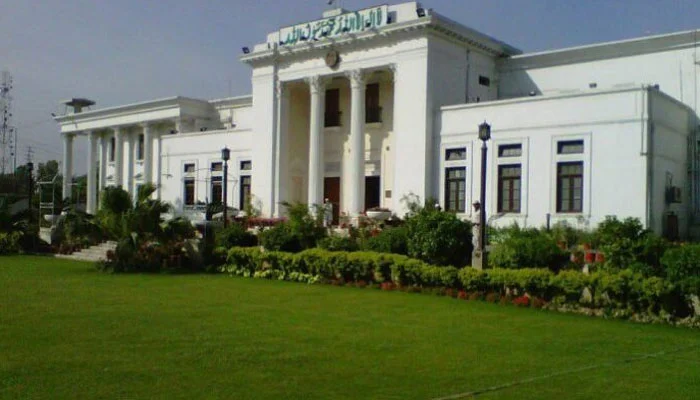The provincial government of Khyber Pakhtunkhwa (KP), led by Chief Minister Ali Amin Gandapur, has set a new record by appointing 12 special assistants to its cabinet. This unprecedented move has expanded the cabinet’s size to an alarming 33 members, raising concerns about its implications for both governance and fiscal responsibility.
This expansion has sparked heated debates in political and legal circles due to potential violations of Pakistan’s constitutional provisions. According to the 18th Amendment, the size of provincial cabinets should not exceed 11% of the total number of assembly members. KP’s cabinet, however, now comprises 23% of the total assembly, which has raised alarms among critics, including legal experts.
The cabinet now includes 15 ministers, 5 advisers, and 12 special assistants, a structure that exceeds even the cabinet sizes of other provinces. Comparatively, Punjab’s cabinet comprises only 5.6% of its assembly, while Sindh’s cabinet stands at around 20%. In Balochistan, no special assistants have been appointed. This stark difference in cabinet sizes has led to public criticism of the KP government’s move.
The appointments have sparked legal challenges, with experts claiming that the appointment of such a large number of special assistants contradicts the spirit of the 18th Amendment. Legal scholars argue that the provision limits the cabinet size to control government expenditure and prevent unnecessary fiscal burden. The use of special assistants to bypass this restriction has been seen as an abuse of constitutional powers.
On the other hand, proponents of the decision, including the Adviser to the Chief Minister on Information, Muhammad Ali Saif, argue that the expanded cabinet is necessary to address the province’s complex administrative challenges. Saif emphasized that the appointments are crucial for improving service delivery and managing key portfolios effectively.
A Finance Department official revealed that each cabinet member, including ministers, advisers, and special assistants, receives substantial salaries and allowances, with monthly costs estimated at Rs220,000 per minister and Rs200,000 for house rent. This financial burden has raised concerns about the sustainability of such a large cabinet, especially in light of the current economic conditions in the province.
Legal experts such as Shumail Butt and Ali Gohar have argued that these appointments undermine the original intention of reducing government expenditure. Butt criticized the bypassing of constitutional limits, while Gohar pointed out that special assistants, despite not being full cabinet members, are granted powers akin to ministers. This loophole has sparked calls for legislative reforms to prevent further exploitation of the system.
In conclusion, while the KP government defends the expansion as a necessity for effective governance, the controversy surrounding the legality and fiscal prudence of these appointments continues to fuel debate across the political and legal landscape.



Comments (0)
No comments yet. Be the first to comment!
Leave a Comment